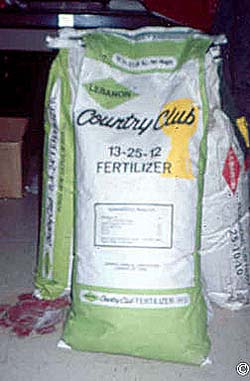What fertilizers are useful to add to alkaline soils in Colorado?
Fertilizer labels indicate product contents in terms of ratios. A common ratio is 1-3-1. Ratios indicate percentage of ingredients by product weight. Nitrogen represents the first of the three numbers listed on fertilizer products, phosphorous the second, and potassium, or potash, the third. Fertilizer products may contain one, two or all three of these major plant nutrients.
Is nitrogen helpful in fertilizers?
Nitrogen is generally in short supply because plants use it in large amounts. Frequent additions of nitrogen fertilizers are beneficial in all areas of the state.
What about phosphorus?
Phosphorus can be beneficial to soils along the Front Range and mountains of Colorado, particularly in sandy soils.  Keep in mind, however, that phosphorous does not move out of the soil like nitrogen, so constant additions are unnecessary.
Keep in mind, however, that phosphorous does not move out of the soil like nitrogen, so constant additions are unnecessary.
Should I add potash to my fertilizer?
Soils along the Front Range and in many mountainous areas contain abundant potash, so it’s unnecessary to add more.
Is iron important to add?
Our alkaline soils make iron and other micronutrients unavailable to plants. Iron deficiency in plants turns leaves yellow with skeleton-like green leaf veins. Select native or adapted plants that grow well in alkaline soils to avoid iron problems.
Applying fertilizers containing iron to lawns and selected plants results in varying degrees of success. Iron fertilizers come in two basic forms, iron sulfate and chelated iron. Alkaline soils quickly bind iron sulfate, which means little is available to plants. Iron sulfate also leaves rust-colored stains on concrete and other surfaces unless swept away while dry.
Chelated iron products don’t bind to alkaline soils. These products are more expensive, but generally the iron is more available to plants. Correcting iron deficiencies is difficult. For best results, choose plants adapted to alkaline soils.
The native fertility of Colorado soils calls for specific kinds of fertilizers. Know what they are so you don’t waste money and time applying fertilizers that are useless in our soil conditions.
For more information, see the following Colorado State University Extension fact sheet(s).



